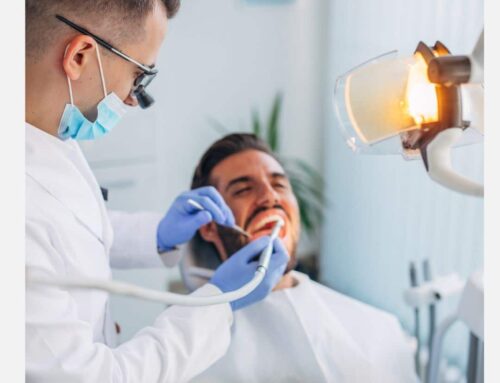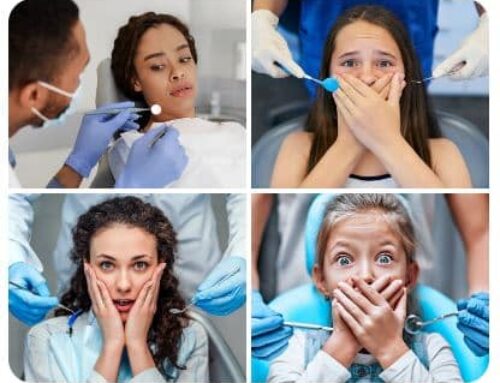Understanding Oral Cancer: Prevalence, Causes, and Symptoms
Prevalence of Oral Cancer
Common Causes of Oral Cancer
- Tobacco Use: The primary risk factor, tobacco, whether smoked or chewed, significantly increases the risk of developing oral cancer.
- Alcohol Consumption: Heavy alcohol use, particularly when combined with tobacco, exacerbates the risk.
- HPV Infection: Infection with certain types of human papillomavirus (HPV) has been linked to a rise in oropharyngeal cancers.
- Sun Exposure: Prolonged exposure to sunlight is a known cause of lip cancer.
Symptoms to Watch For
-
- Persistent sores or ulcers in the mouth that don’t heal.
- Unexplained bleeding or numbness in the mouth.
- White or red patches on the gums, tongue, or lining of the mouth.
- Swelling or lumps in the mouth, neck, or face.
- Difficulty in swallowing, chewing, or moving the jaw or tongue.
- Chronic sore throat or a feeling that something is caught in the throat.
The Significance of Early Detection in Oral Cancer Management
Early detection of oral cancer is pivotal in enhancing both prognosis and survival rates. When oral cancer is identified at an early stage, treatment options are not only more effective but also less invasive, significantly increasing the likelihood of a complete recovery. This early intervention is crucial because it allows for timely management before the cancer advances and becomes more challenging to treat.
The role of routine oral cancer screening, therefore, becomes invaluable. During these screenings, dental professionals meticulously examine the soft tissues of the mouth for any signs indicative of cancerous changes. This includes assessing areas susceptible to oropharyngeal cancer, particularly in relation to HPV (Human Papillomavirus) infections, which have been increasingly linked to this type of cancer.
However, the reality remains that many cases of oral cancer are not detected until they reach a more advanced stage. This delay in diagnosis often results from a lack of regular screenings and a general unawareness of the early signs of oral cancer. The advanced stages of oral cancer often necessitate more complex and extensive treatment approaches, which could have been avoided with earlier detection.
This underscores the critical importance of regular oral cancer screenings as part of routine dental check-ups. Such screenings not only aid in the early detection of oral cancers but also provide an opportunity for dental professionals to educate patients about the risk factors and early symptoms of oral cancer. Awareness and education are powerful tools in the fight against oral cancer, equipping individuals with the knowledge to seek timely medical advice and intervention.
Dentists as Frontline Defenders: The Role of Routine Oral Cancer Screening
Regular Check-ups
Routine dental visits are crucial for early detection. Dentists are trained to identify early signs of oral cancer, even before symptoms become apparent to patients.
Screening Techniques
- Visual Inspection: Dentists examine all areas of the mouth, including the tongue, gums, and inner cheeks, for any unusual signs.
- Physical Palpation: Feeling the tissues of the mouth, throat, and neck to detect lumps or abnormalities.
- Specialized Tools: Some dentists may use special lights or dyes that help see abnormal tissue changes more clearly.
Patient Education
Dentists also play a vital role in educating patients about oral cancer, including its risks, prevention, and the importance of regular screenings.
Identifying Risk Factors: Recognizing Individuals at Higher Risk of Oral Cancer
High-Risk Groups
- Age Factor: Individuals over 40 are at a higher risk, although younger populations are increasingly affected due to HPV.
- Gender Dynamics: Historically more common in men, the gender gap is narrowing with the rise in HPV-related cancers.
- Lifestyle Choices: Tobacco users and heavy drinkers are at a substantially increased risk.
- HPV Infection: Those infected with certain strains of human papillomavirus, particularly HPV-16, are at a heightened risk for oropharyngeal cancer.
- Family History: A family history of oral cancer can predispose individuals to a higher risk.
- Nutritional Deficiencies: Poor diet, particularly low in fruits and vegetables, may contribute to oral cancer risk.
- Chronic Irritation: Persistent mechanical irritation (like from ill-fitting dentures) can increase the risk.
Importance of Regular Self-Examination
Encouraging patients to perform regular self-examinations for any unusual changes in their oral cavity can lead to earlier detection and reporting.
Effective Oral Cancer Screening Techniques: A Guide for Dental Professionals
Comprehensive Screening Protocol
- Visual Examination: Checking for asymmetries, swellings, bumps, patches of color, or ulcerations.
- Palpation Technique: Tactile examination of the face, neck, oral, and pharyngeal regions for lumps or irregularities.
- HPV Testing: Recognizing the role of HPV in oropharyngeal cancers, incorporating HPV testing can be crucial.
- Biopsy Procedures: In cases of suspicious lesions, a biopsy may be necessary for definitive diagnosis.
- Use of Advanced Diagnostic Tools: Implementing tools like VELscope or OralID for enhanced visual assessment.
- Digital Documentation: Keeping photographic records of the oral cavity for tracking changes over time.
- Patient History Analysis: A thorough review of the patient’s medical and lifestyle history to identify potential risk factors.
Training and Education
Continual training and education for dental professionals on the latest techniques and advancements in oral cancer screening and diagnosis.
Promoting Oral Cancer Awareness: Educating Patients on Prevention and Early Detection
Awareness Campaigns
- Oral Health Education: Sessions focusing on the importance of oral health in preventing oral cancer.
- HPV Awareness: Educating about HPV and its link to oral cancer, including the benefits of HPV vaccination.
- Lifestyle Counseling: Advising on the reduction of risk factors such as tobacco and alcohol use.
- Nutritional Guidance: Promoting a healthy diet rich in fruits and vegetables as a preventive measure.
- Regular Dental Check-ups: Stressing the importance of routine dental visits for early detection of oral cancer.
- Self-Examination Techniques: Teaching patients how to perform self-examinations and recognize early signs.
- Community Engagement: Participating in community events to spread awareness about oral cancer prevention and early detection.
Educating patients about oral cancer, its risks, and the importance of regular screenings is a key part of prevention. Dental professionals should inform patients about the links between lifestyle choices (like tobacco and alcohol use) and oral cancer risk. Additionally, promoting HPV vaccination can play a crucial role in preventing HPV-related oropharyngeal cancers.
Comprehensive Oral Cancer Care at Road Dental, Greenslopes
At Road Dental, located in the heart of Greenslopes, Brisbane, our commitment extends beyond routine dental procedures. We prioritize the overall oral health and well-being of our patients, with a special emphasis on the prevention and early detection of oral cancer. Recognizing the pivotal role of early detection in the successful management of oral cancer, our experienced team is meticulously trained to perform thorough oral cancer screenings.
During your visit, our dental professionals will conduct a comprehensive examination, not just focusing on your teeth and gums, but also on the soft tissues of your mouth and oropharyngeal region. This includes a detailed assessment for any signs of oral cancer, such as unusual sores, persistent lumps, or discoloration. We understand the nuances of oral cancer linked to HPV (Human Papillomavirus) and are equipped to address concerns and symptoms related to this increasingly prevalent cause.
Our approach is not just about detection; it’s about education and empowerment. We believe in educating our patients about the risk factors of oral cancer, including the impact of lifestyle choices such as tobacco and alcohol use. By fostering a deeper understanding of these risks and promoting healthy habits, we aim to empower our patients to take proactive steps in their oral health care.
At Road Dental, we use state-of-the-art screening techniques to ensure the most effective and comfortable experience for our patients. Our team keeps abreast of the latest advancements in dental care, ensuring that our methods for oral cancer screening are up-to-date and effective.
We invite you to schedule a routine check-up, which will include a comprehensive oral cancer screening. Early detection is key, and our team at Road Dental is dedicated to providing you with the care and expertise needed for a healthy, cancer-free mouth. For more information, to discuss any concerns, or to schedule an appointment, please visit our website or reach out to us at (07) 3397 3999. At Road Dental, your oral health is our top priority, and we are committed to guiding you towards a path of optimal dental health and wellness.







Leave a Comment